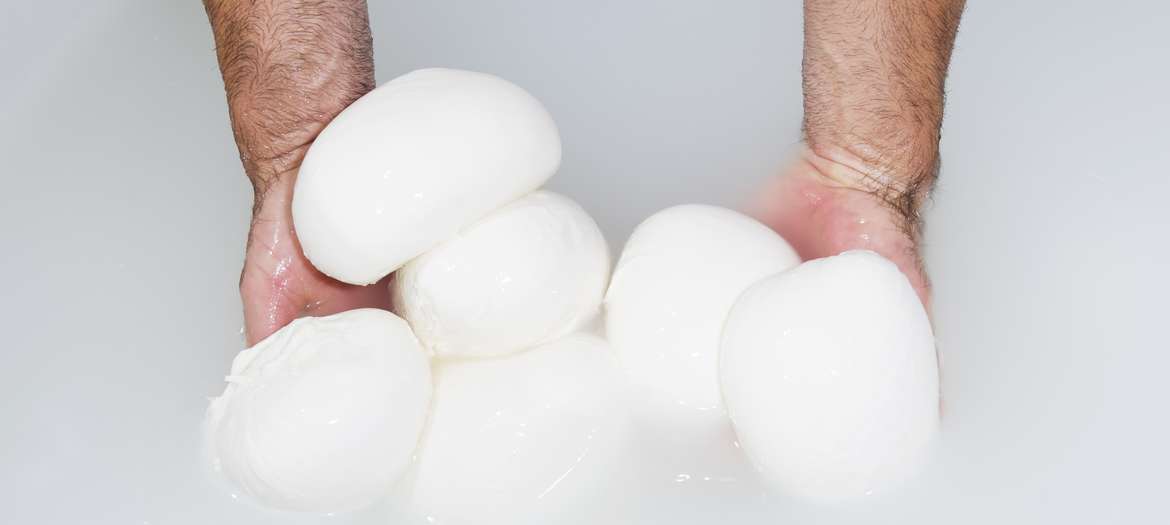Situation:
A machine builder in Peveragno, Italy, supplies customers across Europe with systems for the production of pasta filata cheese. A new machine concept for cheese production required a new type of seal.
Very few seals can effectively handle a large axial displacement and significant shaft deflection. One of these is SeccoLip with its proven and patented lip design that can reliably compensate for shaft deflection.

A machine builder in Peveragno, Italy, supplies customers across Europe with systems for the production of pasta filata cheese. A new machine concept for cheese production required a new type of seal.
The seals had to meet a wide range of requirements. For instance, they had to comply with all FDA requirements and be easy to clean (CIP: cleaning in place).
FDA-compliant, safe, and flexible - SeccoLip is now compatible with side entry drives.
Very few seals can effectively handle a large axial displacement and significant shaft deflection. One of these is SeccoLip with its proven and patented lip design that can reliably compensate for shaft deflection.
The machine builder GEA CMT (formerly CMT S.p.A.) in Peveragno, Italy, supplies customers across Europe with systems for the production of pasta filata cheese. A new machine concept for cheese production required a new type of seal. GEA CMT first put the SeccoLip seals from EagleBurgmann through their paces in a test system. After the very successful test operation, 12 machines were equipped with 24 SeccoLip seals: one on the drive side and one on the non-drive side.
The seals had to meet a wide range of requirements. For instance, they had to comply with all FDA requirements and be easy to clean (CIP: cleaning in place). This was important to prevent the accumulation of milk in the area of the seal. Without appropriate cleaning, the machine could even fail, resulting in high costs and significant time to repair.
The new SeccoLip seal was developed because dry running was expected under the given operating conditions. The two-lip model of the SeccoLip seal has a cartridge design without a rolling bearing. This version with its simple and compact design is particularly suited for applications with moderate requirements and minimal space. Optional monitoring of seal leakage provides additional protection.
Both lips are installed in the housing facing toward the product. This allows the seal to be operated with an unpressurized quench fluid between the two lips. The accumulation of milk residue in the seal is prevented in this way. The lip in contact with the product is also completely flushed during the cleaning process to ensure optimal function. This reliably avoids contamination in the sealing gap.
The container is cleaned (CIP) after every unloading. There are three cleaning steps: first water, then caustic water, and finally water again. This process takes about 15 to 20 minutes. The main cleaning of the container (CIP) takes place at the end of the production day. This cleaning sequence consists of water, caustic water, water, saltpeter and then water again. The entire procedure takes a little less than one hour.
During the initial test runs, a leak was discovered on one seal. After an inspection, however, the actual problem was quickly identified. A heavily skewed machine shaft resulted in a leak at the SeccoLip seal. After realignment, the shaft ran much truer and the leak was eliminated.
Apart from this, further experience with SeccoLip was consistently positive. The lips and coating do not produce wear particles. SeccoLip lived up to all expectations and has been in successful operation since the end of 2019.
Operating conditions
Lip seal for agitators, mixers, dryers, reactors and screw conveyors.

Between June 2017 and March 2019 the Hengli Group constructed an integrated refining and chemical complex in the Chinese harbor town Dalian where 20 million tons of crude oil are processed every year. EagleBurgmann advised the company Hengli concerning the selection of mechanical seals and supply systems for the whole plant and supplied more than 95 % of the components in use.

In Great Britain, a shortage in natural gas supply has severe consequences: Since the country switched from coal-fired to gas-fired power stations, a gas supply shortage makes households and industrial consumers not only vulnerable to failing heating and gas stoves, but also to power outages. Companies along the value and transportation chain of natural gas are therefore especially dependent on reliable equipment.

Our modern civilization is quite literally built upon cement. Today, building materials made from cement are used in buildings, roads, bridges, dams etc. Cement production is a heat-intensive process and causes thermal expansion in duct systems. To compensate this, Indian cement producer Ramco Cement needed fabric expansion joints with a diameter of several meters for two of their plants. On the basis of a close collaboration, EagleBurgmann was able to design components that increase the efficiency of the plant in the long run.

Frequent starts and stops are a severe test for gas-lubricated compressor seals. Installed in an Argentinean combined cycle power plant is an EagleBurgmann supply system that provides a continuous gas flow rate for the seals and adapts it to changing conditions. Since then, the operational reliability of the compressors has increased significantly.

Seals are a risk factor in the production of liquid crystals. If there is even the slightest contamination of the liquid crystals, this will later affect the image quality of the display. Read on to see which sealing solution Merck KGaA uses in paddle dryers for the production of liquid crystals.

Reduce maintenance costs for seal supply systems and extend MTBR intervals - EagleBurgmann's task was to significantly improve the availability of unmanned pump stations in a gas pipeline in Texas with single seals for multifluid pumps.